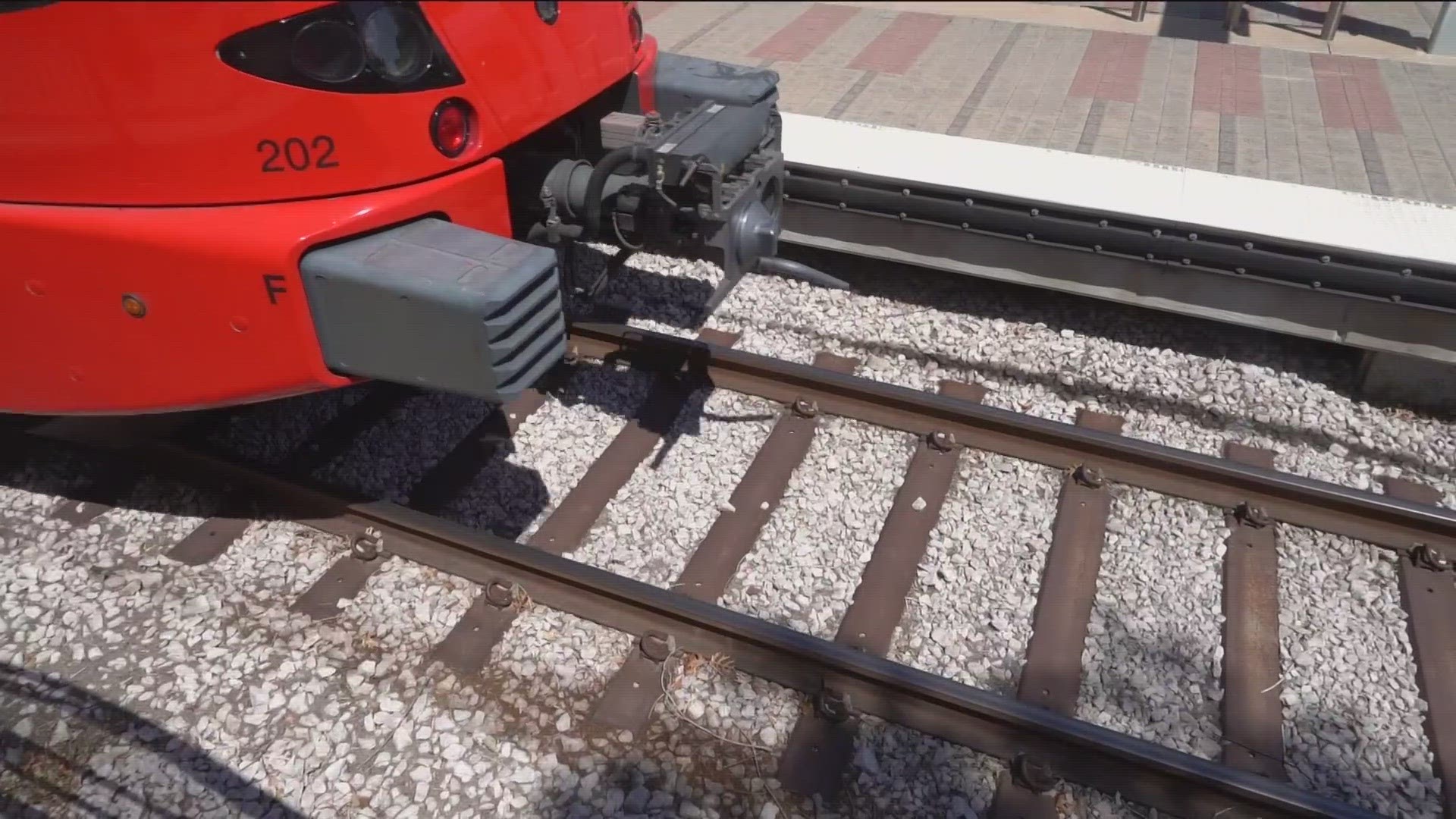AUSTIN, Texas — The constant extreme heat affecting Central Texas is causing Capital Metro (CapMetro) to temporarily modify its rail operation in the Austin area.
As a precaution, the rail service, which runs 32 miles from Downtown Austin to Leander, will run at a reduced speed temporarily to alleviate potential dangers caused by excessive heat.
According to CapMetro, the decision was made after a train engineer noticing a track buckling between the Highland and MLK Jr. stations on Aug. 5.
CapMetro said anytime a track's temperature reaches 135 degrees or higher, the trains have to slow down for safety purposes and to prevent serious damage to the tracks. Extended periods of extreme heat can cause tracks to bend, warp or reshape entirely, otherwise known as a "sun kink."
"If they nail down to the ties and the track expands, what's going to know where to go other than to bend on itself," said Andy Skabowski, the COO and executive vice president of CapMetro.
The new modifications mean that train service will be delayed slightly, with CapMetro planning to issue service alerts in cases where trains are running more than five minutes behind schedule.
This is not the first time the rail service has been slowed down due to heat – similar precautions were also taken last summer.
Brian Gettinger, a civil engineer and transit consultant, said there are other options.
"If you go underground for a system, it's going to be 60 degrees down there, no matter if it's January or August. And it does provide the rider a little different experience," Gettinger said.
But for now, the City of Austin is trying to work with the infrastructure it has, including roads, laying down a chemical on the roads known as their cool pavement technology, which is meant to help decrease the temperature by 10 degrees on street surfaces.
Despite attempts to make the roads cooler, direct sunlight still takes a toll on infrastructure.
"The more that happens, it's hard on the infrastructure ... getting hot and getting cold, particularly in the sun, it might be 105. But in the sun, it might be that, you know, that that surface might be 130," Gettinger said.
Skabowski said this summer is proving to be a challenging one for CapMetro but reassured that the service wants to prioritize their staff above all.
"The other impact it has is on our workforce, it's hot. And so, you know, we give them Gatorade, we let him take extra breaks. That does affect productivity, obviously," Skabowski said.

